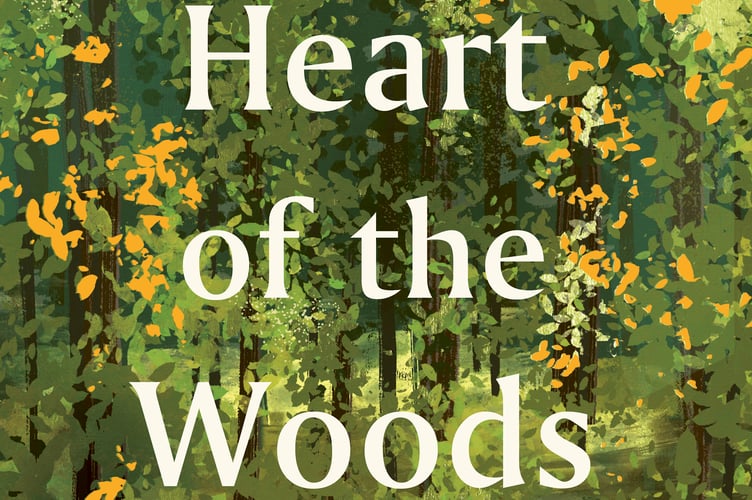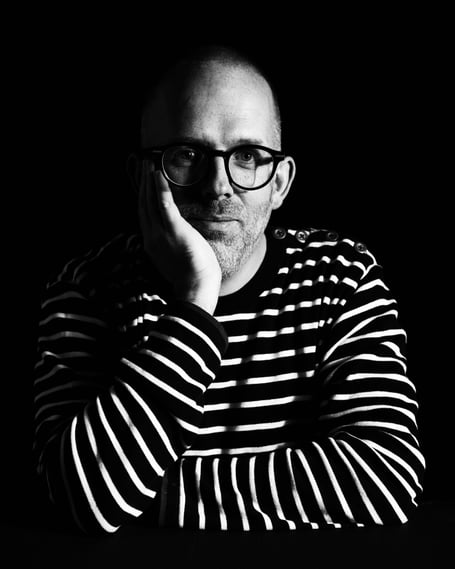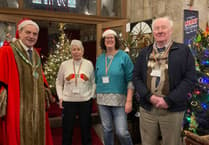Do you have a favourite tree? Perhaps it’s the knotty beech in Tehidy Woods, near Camborne, or the Nearly Home Trees as you cross the Tamar near Launceston. Maybe you have made a pilgrimage to see the Darley Oak, on the edge of Bodmin Moor – reputedly Cornwall’s oldest tree at close to 1,000 years old.
Since writing a book about trees, author Wyl Menmuir has found himself bombarded by friends, relatives – anyone, really – who want to tell him about their favourite trees. “It’s a brilliant discussion to have,” he says.
“Everyone has a connection to a tree in their lives. They are markers. We go and see them year in, year out. We judge how much they have grown or stayed the same.”
Wyl’s last book, The Draw of the Sea, saw him go wild swimming, freediving, walrus watching, pilot gig rowing and lobster potting, planing bellyboards and seeking shells, all off the coast of Cornwall and Scilly.
The Heart of the Woods is its inland counterpart. This time, Wyl travels the length of Britain and Ireland to meet the people who plant trees, the ecologists who study them, and the craftsmen and women who shape beautiful objects from their wood.
He indulges in forest bathing in Northumberland, tracks down a clootie well in the Scottish Highlands, finds a hidden fragment of oceanic rainforest in County Clare, and makes a pilgrimage to a sacred forest in Tokyo.
He contrasts his father’s fledgling woodland in North Wales, which inspired the book, with an ancient yew grove on the England-Wales border, and scares himself silly in Shropshire by wandering woodlands at night.
Closer to home, he explores woodland burial and willow coffin weaving at Pensilva in south-east Cornwall, goes a-wassailing in St Day, near Redruth, and meets Truro boatbuilder Luke Powell.

We chat in Truro’s Victoria Gardens, in the company of 15-month-old Border Collie/poodle cross (a “bordoodle” for short, but Wyl seems rather embarrassed by the term).
We are surrounded by trees of all kinds and shades of green. Among them is a shirtless man practising what looks like tai chi. As well as distracting me terribly from the task in hand, he is the living embodiment of the varied ways in which people like to use trees and woodland.
“It’s why people were so upset about the felling of the Sycamore Gap tree,” says Wyl. “Picnics and engagements have taken place under it. So many people have attached stories to it.
“Its absence opens up a new conversation. It was striking as the only tree there, and it’s now a treeless landscape. It’s a springboard to talk about why, as a nation, we are so rubbish at having trees.”
At the heart of this conundrum are our competing priorities. “We want places to walk in, where life can flourish, but we also want to grow timber and hunt,” he muses.
And we want to travel further and faster, leading to HS2 cutting an irreversible swathe through ancient woodlands.
“I suspect we still don’t understand the importance of woodland, in the same way we don’t understand what we’ve done to the sea,” adds Wyl. “The underlying message is that we need to look after this place a whole lot better. Without trees, we are screwed.”
He waxes lyrical about the fairy doors in Truro’s Coosebean Woods – John Rowe was given a Truro Civic Award for creating them. “I didn’t like things added to woodlands until I met John,” Wyl admits.
“He told me about the people who asked him to commemorate loved ones, and the stories attached to them. It changed my mind. Now I go there with my dog, Enys, and it’s nice to hear the children laugh, running around, engaging with woodland in a way they might not otherwise.
“When I first went to Coosebean, the woods were scrappy and people had dumped stuff there. People look after them now, and you can see the work that has gone into it.”
One of his favourite chapters concerns Pentiddy, a woodland, small-holding and natural burial site at Pensilva on the south-eastern fringes of Bodmin Moor. Owners Ele and Anthony Waters believe all those buried in the woodland are contributing to its eco-system: “That woodland will have a bit of all those people in it, and therefore a connection to it.”
“We don’t often talk about death, despite its inevitability, but it doesn’t need to be morbid,” Wyl says. “The woodland gives us a vehicle to do that.”
In the long-term, as a result of his research, he has signed himself (and, by association, his family) up to the Association of Pole-Lathe Turners and Green Woodworkers (aka bodgers). Will they all be going to the Bodgers’ Ball? “If I do, it will be on my own,” he laughs.





Comments
This article has no comments yet. Be the first to leave a comment.